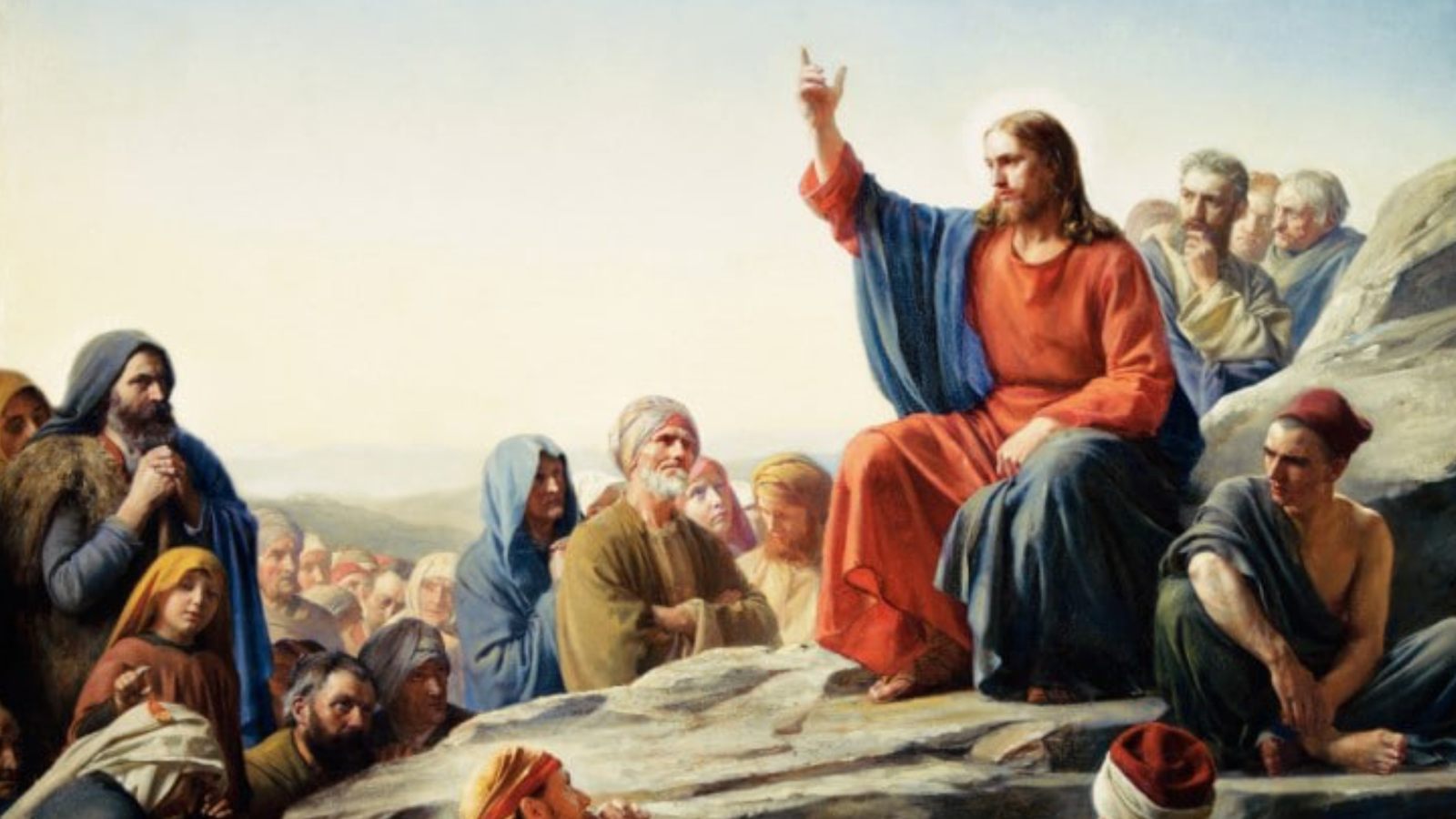Jesus as the Lamb of God: The Ultimate Sacrifice for Humanity

Throughout Christian theology, Jesus is often referred to as the “Lamb of God,” a title that holds profound significance for believers. This designation is not just a symbolic reference but encapsulates the heart of the Christian faith: the sacrificial death of Jesus Christ for the salvation of humanity. To understand the depth of this title, we must explore its biblical origins, its connection to Old Testament sacrifices, and the profound impact it has on the life of every believer today.
The Biblical Origin of the Lamb of God
The phrase “Lamb of God” is first introduced in the Gospel of John. In John 1:29, John the Baptist declares as he sees Jesus approaching, “Behold, the Lamb of God, who takes away the sin of the world.” This moment is crucial as it reveals Jesus’ divine mission on Earth—to take upon Himself the sins of humanity and offer the ultimate sacrifice for redemption.
The title “Lamb of God” draws deep connections with the Old Testament, where lambs were commonly used in sacrificial rites as a means of atonement for sin. In this context, the lamb was viewed as pure, spotless, and innocent, symbolizing an offering that could bring reconciliation between humanity and God.
The Lamb in the Old Testament
To fully understand why Jesus is called the Lamb of God, we need to look at the sacrificial system in the Old Testament. In the book of Exodus, the Israelites are commanded to sacrifice a lamb during the Passover festival. This lamb’s blood was smeared on the doorposts of the homes of the Israelites, signaling that the angel of death would pass over their houses during the final plague in Egypt (Exodus 12:1-13). The lamb was to be perfect, without blemish, representing purity and innocence.
Furthermore, the sacrificial lamb played a significant role in the Day of Atonement (Yom Kippur), where the high priest would offer a lamb as a sin offering for the people of Israel. This act was a temporary measure to cover the sins of the people until the coming of a permanent solution.
Jesus as the Fulfillment of the Lamb
In the New Testament, Jesus is identified as the fulfillment of these Old Testament sacrifices. He is the “perfect” Lamb—sinless, without blemish, and wholly pure—offering Himself as the ultimate sacrifice to take away the sins of the world once and for all. This is not just a symbolic act but a historical event that changed the course of humanity’s relationship with God.
In Hebrews 9:12-14, we see how Jesus, through His sacrifice, entered the “Most Holy Place” once and for all, securing eternal redemption for believers. His sacrifice was not a temporary solution but the final atonement for sin, offering forgiveness and peace with God. Jesus’ death on the cross as the Lamb of God broke the power of sin and death, offering freedom and eternal life to all who believe.
The Significance of the Lamb’s Blood
The blood of the lamb in the Old Testament signified life and protection. In the New Testament, the blood of Jesus as the Lamb of God carries even greater significance. Through His death, Jesus poured out His blood as the ultimate act of love and redemption, cleansing believers from sin and reconciling them with God. In 1 Peter 1:18-19, it is written, “You were redeemed with the precious blood of Christ, a lamb without blemish or defect.”
Jesus’ blood is powerful. It is through His blood that the believer is made new, forgiven, and set free from the consequences of sin. The blood of the Lamb of God becomes the foundation of the New Covenant, a promise of eternal life and unbroken fellowship with God.
The Lamb of God in the Book of Revelation
The title “Lamb of God” also appears prominently in the Book of Revelation, where Jesus is depicted as the Lamb who was slain but now reigns in glory. Revelation 5:6 describes Jesus as “the Lamb, looking as if it had been slain, standing in the center of the throne.” This imagery connects the sacrificial death of Jesus with His triumphant victory over death and sin. In Revelation 7:17, it is said that the Lamb will shepherd believers, leading them to living waters, symbolizing the eternal peace and security found in Christ.
The Lamb of God is not a figure of defeat but one of victory. His sacrificial death was the means by which He conquered sin, death, and Satan. The Lamb reigns as the victorious King, and His people are assured of a future in His presence, free from pain and suffering.
The Lamb and Our Salvation
The core of Christian salvation rests in the sacrificial death of Jesus as the Lamb of God. It is through His death that believers are granted forgiveness and eternal life. As the Lamb, Jesus took the punishment that humanity deserved, offering grace and mercy in return.
This sacrifice was not a random act; it was the culmination of God’s perfect plan for redemption. Jesus, the Lamb of God, willingly laid down His life so that all who believe in Him might be saved (John 3:16). His sacrifice is the bridge that connects humanity to God, making it possible for us to experience the fullness of life in Him.
Living in the Light of the Lamb
The call for believers is not only to recognize Jesus as the Lamb of God but to live in the light of His sacrifice. Understanding the depth of what Jesus did for humanity compels believers to live lives of gratitude, worship, and obedience. The Lamb who took away the sin of the world also calls His followers to live holy and sacrificial lives, reflecting His love and grace to those around them.
In Revelation 12:11, it is written, “They triumphed over him by the blood of the Lamb and by the word of their testimony.” Believers are called to overcome by the blood of the Lamb and the testimony of God’s grace in their lives. Our victory is found in the Lamb, and we are called to share His message of salvation with a world in need.
The Lamb Who Is the King
The title “Lamb of God” is a beautiful and powerful reminder of the sacrifice that Jesus made for humanity. Through His death, Jesus fulfilled the Old Testament sacrificial system, offering the perfect and final atonement for sin. His blood covers believers, bringing forgiveness, healing, and eternal life. But Jesus is not just the Lamb who was slain—He is also the victorious King, reigning in glory and offering salvation to all who will accept Him.
As we reflect on the Lamb of God, we are called to live in the fullness of His sacrifice, knowing that through Him, we have been redeemed, forgiven, and granted eternal life. The Lamb of God, who once took away the sins of the world, now leads us to victory, guiding us to a future filled with hope and the promise of His presence forever









